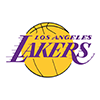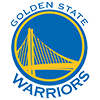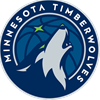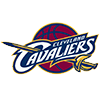This article will be a weekly series leading up to the season, and initially there is some spring cleaning to address. I'll first try to get through a comprehensive accounting of the looming job battles, going in QB-RB-WR-TE order, and then the subsequent articles should mostly deal with the news that occurs between now and then. This edition will deal with the quarterbacks, with the battles listed in alphabetical order by team.
Quarterback
Sam Bradford vs. Josh Rosen in Arizona
You may have heard about Bradford's "$40 million, two-year contract" with Arizona, but it's more likely a one-year deal, and one that was signed far prior to Arizona knowing they would be within reach of a top quarterback prospect in the first round. If Rosen isn't starting for Arizona, it won't have much to do with Bradford's contract, which was pretty clearly an insurance measure rather than a meaningful commitment. Who knows if they even would have signed him if they knew they'd be able to acquire Rosen?
Rather than Bradford's pay, it's his skill level that could pose a barrier to Rosen joining the starting lineup. Bradford was only on the market in the first place because he's damaged (broken?) goods – when healthy he's been quite good the last two years, throwing for 23 touchdowns versus five interceptions in his last 17 games. NFL coaches are notoriously averse to rookies for fear of them making mistakes, and Bradford might make it tough on Rosen in that sense. Bradford
This article will be a weekly series leading up to the season, and initially there is some spring cleaning to address. I'll first try to get through a comprehensive accounting of the looming job battles, going in QB-RB-WR-TE order, and then the subsequent articles should mostly deal with the news that occurs between now and then. This edition will deal with the quarterbacks, with the battles listed in alphabetical order by team.
Quarterback
Sam Bradford vs. Josh Rosen in Arizona
You may have heard about Bradford's "$40 million, two-year contract" with Arizona, but it's more likely a one-year deal, and one that was signed far prior to Arizona knowing they would be within reach of a top quarterback prospect in the first round. If Rosen isn't starting for Arizona, it won't have much to do with Bradford's contract, which was pretty clearly an insurance measure rather than a meaningful commitment. Who knows if they even would have signed him if they knew they'd be able to acquire Rosen?
Rather than Bradford's pay, it's his skill level that could pose a barrier to Rosen joining the starting lineup. Bradford was only on the market in the first place because he's damaged (broken?) goods – when healthy he's been quite good the last two years, throwing for 23 touchdowns versus five interceptions in his last 17 games. NFL coaches are notoriously averse to rookies for fear of them making mistakes, and Bradford might make it tough on Rosen in that sense. Bradford doesn't really make mistakes, and a coach is less likely to penalize a quarterback for three-and-outs than they are for slight misreads on route adjustments, let alone unnecessary sacks or turnovers.
Of course, Bradford's knee issues are so profound that the question of his skill might never come into play in the first place. We know he's suffered two ACL tears to the same knee, and we know he was shut down last year with more trouble in that knee. What's disturbing is there was never a reliable diagnosis for his troubles – MRI results on the knee were inconclusive because there was too much scar tissue to observe the ligaments. I don't know about you, but I've never heard of that. Could Arizona doctors so much as determine the state of the knee, even at this point, when the Vikings evidently never could? We've seen NFL teams show some level of subjectivity toward their passages and denials of physicals, so Bradford's knee might remain something of a mystery despite his team clearance.
As much as it seems like that Rosen will see starts this year due to injury to Bradford, the rookie is a strong enough prospect that he might earn starts by merit, too. Rosen fell to the 10th overall pick but this was mostly due to NFL shot callers disliking his politics, even if their motives were latent rather than conscious. Rosen is objectively better than Josh Allen, who went seventh overall. Rosen has advanced polish especially with making the sort of intermediate throws that make up the bulk of successful modern NFL passing, and he's about as pro-style polished as a rookie quarterback can be. While the general thinking is that Rosen lacks the upside of Allen, Baker Mayfield, and Sam Darnold, he could very well be the best of the four in the meantime.
The question of whether either quarterback would provide fantasy value outside of two-QB and superflex leagues isn't as clear. Offensive coordinator Mike McCoy is a former quarterback who oversaw some fine seasons from Philip Rivers, but head coach Steve Wilks calls the final shots, and it's tough to tell where his philosophies might fall on the spectrum. Wilks has been groomed since 2006 by Ron Rivera, a decidedly old-school coach, and it wouldn't be surprising if Wilks viewed things similarly. Even if McCoy is left entirely to his own devices, his past schemes and playcalling were generally moderate, so if the Cardinals offense features much tempo, motion, run-pass options, or aggressiveness generally, it would probably qualify as a paradigm shift for both McCoy and Wilks.
Bradford and Rosen both look like potentially competent passers, and the pass-catching rotation of Larry Fitzgerald, Ricky Seals-Jones, Christian Kirk, and Chad Williams has some promising elements. If Wilks and McCoy learn a lesson from the Doug Pedersons and Sean McVays of the league, they'll shed convention for pragmatism and put either quarterback in position to demonstrate their skill. It might be more objectively reasonable to expect a low-tempo, low-aggression offense, however, and the Arizona schedule looks challenging, especially early in the year.
Joe Flacco vs. Lamar Jackson in Baltimore
This entry should be briefer than the last. There probably isn't much of a competition here – the Ravens will likely resolve to start Flacco in Week 1. The company line from that point will likely emphasize the team's utmost confidence in their longtime starter, and insist his job security isn't in question. The question is how long Baltimore is willing to carry on that act. Even if Flacco were good (he is not), the pass-catching rotation of Michael Crabtree, Willie Snead, John Brown, and Hayden Hurst is so uninspiring that you probably couldn't blame him much for whatever failures might occur.
Lamar Jackson is the better quarterback, if one who might require accommodation with an altered schematic approach. It's no guarantee that Jackson sees a single start this year, but it would take a team policy to dictate that outcome – it's next to impossible if merit comes into the equation. Jackson will do things in practice that might start to chip away at the morale of the entire team if Flacco continues to play like he has for years. The company line might be repeated by the veterans of the team, but only bitterly. The fans will know what's up, too.
Even if the Baltimore management concedes and puts Jackson on the field, he might have a rough go of things as a passer. His Louisville supporting cast wasn't great, but it was probably better relative to that level of competition than this Ravens offense is to the NFL. The good news is that he's the most dangerous runner the quarterback position has ever seen. Jackson could be a disaster as a passer and still a useful fantasy quarterback, maybe even in one-QB leagues, just because he'll always be a threat to run for triple-digit yardage.
The most likely outcome with the Baltimore quarterback position might be the most obnoxious one: a rotation between Flacco and Jackson, with the latter playing the Kordell Stewart role behind the Neil O'Donnell of the offense. (The Ravens will not make the Super Bowl despite this historical parallel.) Of course, Jackson is no Stewart, and Flacco isn't even as good at this point as O'Donnell was at the time.
Nathan Peterman vs. A.J. McCarron vs. Josh Allen in Buffalo
Harrowing. One of these guys finished last year with a box score of 24-of-49 for 252 yards, two touchdowns and five interceptions. That guy likely heads into training camp with a slight lead in this competition.
That's right, the Nathan Peterman Show might get renewed for a second season. To be serious, Peterman running the first-team offense in OTAs was most likely a by-default result of seniority. McCarron and Allen might both be bad (they likely are), but there's still a pretty good chance they push Peterman to the third-team role a couple weeks into training camp.
No matter whether it's Peterman, McCarron, or Allen under center for the Bills, this could be historically ugly. The Bills are in realistic contention for the league's worst personnel at all of quarterback, offensive line, and wide receiver. LeSean McCoy is incredible, but he probably can't carry an offense this utterly broken. I really can't imagine any of the three proving useful in 1QB leagues of fewer than 16 teams.
Allen's pedigree as the seventh overall pick makes him the eventual favorite to take over this starting role in 2018, but I don't think we can take much for granted. Allen's production at Wyoming was poor to an almost disqualifying extent – NFL coaches were simply hypnotized by his legitimately incredible arm strength, as well as his build and demographic similarities to Carson Wentz. Just because he's a huge country kid with a strong arm does not mean Allen is similar to Wentz, however. Maybe Allen will learn to read a defense and throw accurately, but he couldn't do it at Wyoming.
Tyrod Taylor vs. Baker Mayfield in Cleveland
Out of all these quarterback battles, this one has the most talent, which in some ways makes it the most difficult to anticipate. Taylor might be a below average starter in relative terms, but any evaluation of him in a vacuum would determine some significant level of competence. It's unlikely that he's any less than the 20th-best in the league or so, and there are some indicators that imply he's more than that. Considering how poor his pass catchers were in Buffalo, it wouldn't be surprising if Taylor took a substantial step forward with the Browns' suddenly loaded offense. It might be somewhat difficult to fail when you're throwing to Josh Gordon, Jarvis Landry, Corey Coleman, and David Njoku.
On the other hand, Mayfield is a dynamite prospect, and the Browns selected him first overall to get him on the field. The question is when that occurs at Taylor's expense, not if. Coach Hue Jackson said Taylor will be the starter, but with Todd Haley around it's tough to tell if that's even Jackson's shot to call. The conventional thought is Taylor will indeed begin the year as starter, with the extent of his reign determined by how well he produces. Taylor totaled 65 touchdowns versus 21 turnovers over the last three years, so it could take an injury for Mayfield to get that initial shot.
When Mayfield gets that shot, though, it might be a wrap. It's unfair to expect big production from rookie quarterbacks, but Mayfield really showed a Drew Brees-like ability to anticipate and manipulate space at Oklahoma. His playmaking ability projects to be among the best in the league soon enough. If his completion percentage of 70.7 over the last two years paired with an 11.3 YPA are any indication, Mayfield will have AFC North safeties tangling their feet not too long from now.
Josh McCown vs. Sam Darnold in New York
McCown was presumed a near lock to open the year as starter for the Jets, and he remains the heavy favorite to do so. That's both because McCown was legitimately impressive last year and because Darnold is young even for a rookie, and for all his substantial potential he had ball security issues at USC, especially with fumbles – 21 total in 27 games, including 14 lost. That Darnold was still a longtime favorite to go first overall is a testament to his upside, and players with his combination of tools and temperament sometimes make fast progress with enough reps.
So it's not shocking that as the Jets spend more time with Darnold, the buzz of him possibly starting picks up. McCown himself provided a rather emphatic endorsement of Darnold, coming across as fully earnest in his praise even despite his reputation as an exceedingly nice guy. As good as the odds are for McCown beginning the season as starter, his chances of finishing the year as starter seem quite poor. Darnold appears to be closing in already, and even if he weren't, McCown hasn't played 16 games in any of his past 15 seasons.
Whoever is on the field might have some considerable amount of spot-start utility, even if it's difficult to invest in either in a draft setting. That McCown threw for 2,926 yards, 18 touchdowns, and nine interceptions in 13 games last year was certainly a surprise, but for at least a decade now he's shown a fairly reliable skill set, and the Jets quietly have a deep group of wideouts in Robby Anderson, Quincy Enunwa, Terrelle Pryor, and Jermaine Kearse. Like McCown, Darnold is also a candidate to produce on the ground after running for seven touchdowns in two years.























